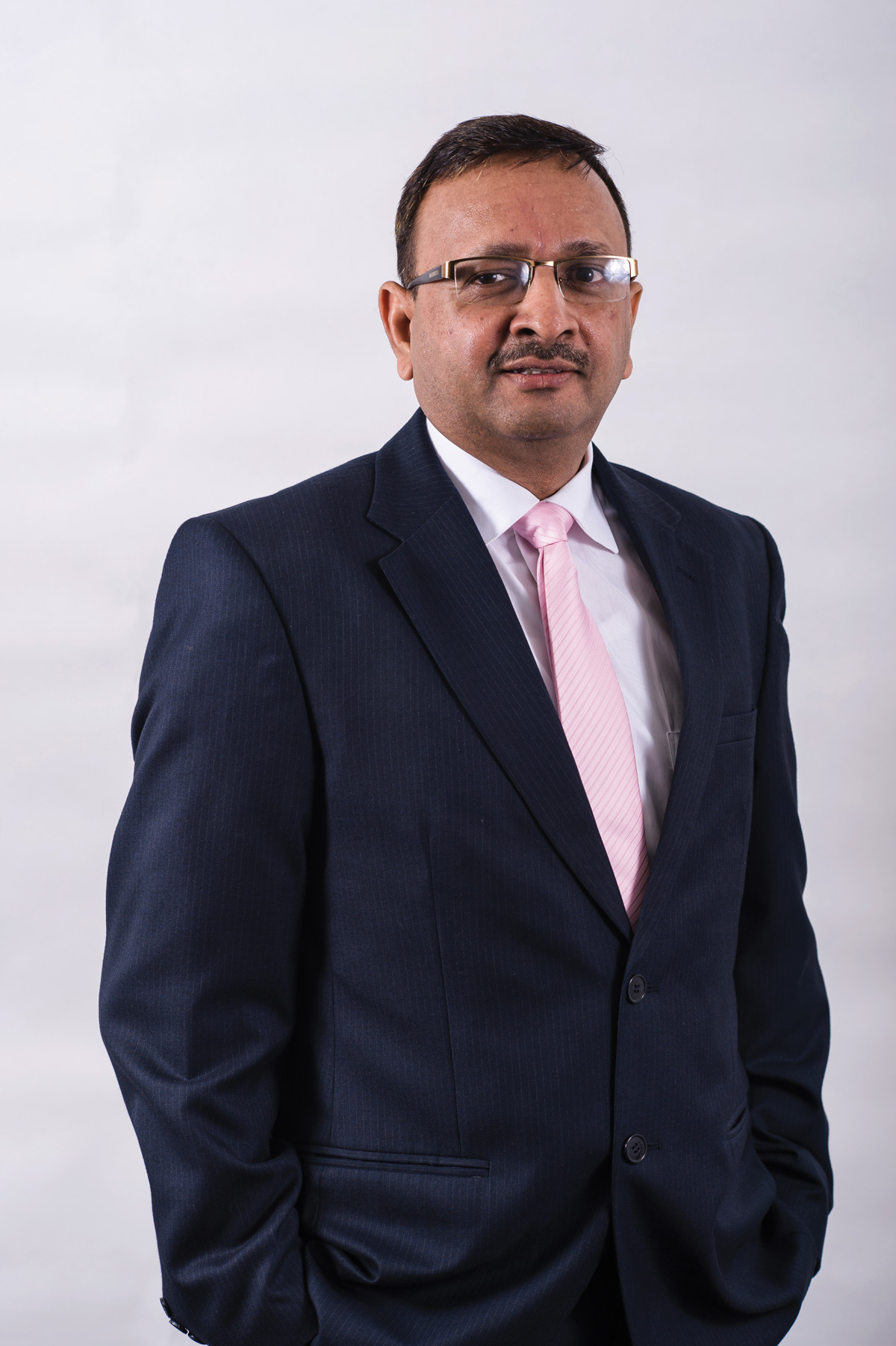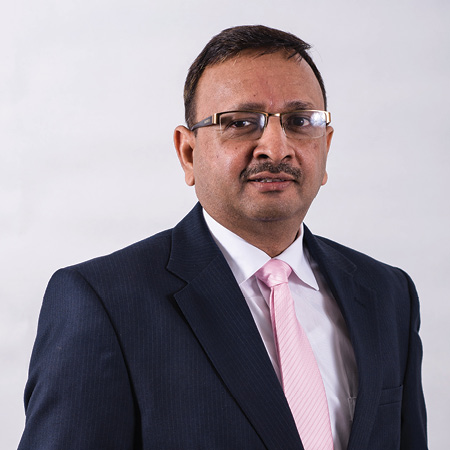In 2006, Millennium Steel in Thailand was acquired by Tata Steel — a huge brand that has a presence in more than fifty countries around the world — and Tata Steel (Thailand) was set up and organised as a holding company to oversee three subsidiaries — N.T.S. Steel Group, Siam Iron and Steel, and Siam Construction Steel. Headquartered in Bangkok, it has manufacturing facilities in Chonburi, Rayong, and Saraburi, and a manufacturing capacity of 1.7 million tonnes per annum.
Rajiv Mangal has been the President and CEO of Tata Steel (Thailand) for three years this December; however, his association with the brand extends a lot further back than that. The trained material science engineer joined the organisation more than twenty-seven years ago, and during that time he has continually been exposed to the company’s intricate practices and ever-evolving culture. Ultimately, this has moulded him into the leader he
is today; a president and CEO with strong views on the importance of establishing robust relationships with all stakeholders, being innovative, and having great foresight.
During the last few years at the helm of Tata Steel (Thailand), Rajiv has witnessed many changes within the organisation. “The top two that come to mind are: challenging the status quo and continuous improvement, and a strong focus on the conservation of cash,” he says.
To address these, together with his top management team, Rajiv has created small departments to decentralise the company’s operations, give accountability to middle management, and lessen the workload of top management so they can focus on bigger and more important things.
“In terms of output, we had lot of loans to be paid by the company and we are now in a situation where we have cleared all of our long-term debt,” Rajiv explains. “This has all been done through internal efforts, even though the steel business was not generating the best results worldwide. Secondly, in all areas of our business operations there are improvements happening that involve a lot of our employees.
I believe that will add value in the long run. The focus now is on improving the topline of the business, and largely focusing on employee engagement.”
‘Tata Steel has always believed in a long-term perspective’
Inculcating this culture of continuous improvement has been an important priority for Rajiv. “Tata Steel has always believed in a long-term perspective and hence, the culture in the organisation has become of utmost importance,” he says. “How do we instil this culture? There are three broad areas: one is to communicate and explain well; the second is to build expected behaviors in as part of our processes; and the third is to lead by example and make sure that the leadership team speaks about what they are actually doing and also does everything they say they are going to do.”

My focus moving forward, is to become a dividend-paying company so that my shareholders feel good about their investment.
This culture also extends to the key suppliers and other corporate partners of Tata Steel (Thailand). Almost 80 per cent of the company’s revenue goes into the buying of raw materials, services, or other products, and therefore suppliers play a critical role in the business. “We categorise suppliers as either strategic or transactional, but in both cases our effort is to make sure they work in line with the Tata Steel code of conduct,” Rajiv notes. “For strategic suppliers we do more long-term contracts, and we make sure they get regular business with ample communication and feedback. This ensures their plans are in sync with ours. For transactional customers, based on the performance, we typically try to see how there can be more repeat business, rather than doing too much window shopping.”
Looking towards the future, Tata Steel (Thailand) is planning to continue its streak as a profit-making organisation, as well as improve its after-sales service, supply chain, and product line. “My focus moving forward, is first to become a dividend-paying company so that my shareholders feel good about their investment, and second to make sure our return on invested capital is higher than our cost of capital. This means we are a value-generating company. Finally, we want to be an employer of choice. We want the future generation to see Tata Steel as an organisation they would like to work in.”



